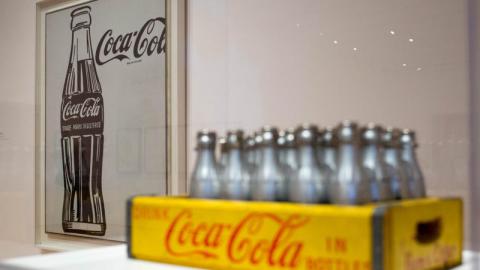- The Cost Of Independence: Economics And Labor In DIY Music – David Combs (Bandwidth)
- Museums' disturbing transformation: relentless commercialization – Christopher Knight (Los Angeles Times)
- Atticus Was Always a Racist: Why Go Set a Watchman Is No Surprise – Catherine Nichols (Jezebel)
- A Fact-Based Guide to Resisting Anti-Choice Propaganda in the Wake of the Attack on Planned Parenthood – Andrea Grimes (RH Reality Check)
- Ingrid Sischy Made the Avant-Garde Accessible – Jesse Dorris (Slate)
The Cost Of Independence: Economics And Labor In DIY Music
By David Combs
June 26, 2015
Bandwidth
If we calculate the potential costs of a touring DIY musician, we can factor in hard expenses like gasoline, merchandise and food. And there are other expenses that some artists choose to take on, like hiring a publicist or booking agent.
When we start to count the hours of unpaid labor musicians put into our work, and when we look at how intensely musicians structure our lives around accommodating those hours of unpaid labor, it raises the question: Doesn’t it seem strange that we should work so hard without compensation?
To shed light on these big questions, I talked to some of my musician friends about how they look at labor, the invisible expense.
Museums' Disturbing Transformation: Relentless Commercialization
By Christopher Knight
July 17, 2015
Los Angeles Times
Museum commercialization is rampant in the new millennium.
The erosion of the wall between art museums and commerce is a symptom of a larger generational shift that took off in the 1980s and has peaked in the 21st century: The drive to privatize public services and deregulate business, a hallmark of conservative and neoliberal doctrines.
Atticus Was Always a Racist: Why Go Set a Watchman Is No Surprise
By Catherine Nichols
July 20, 2015
Jezebel
When the news broke about Go Set a Watchman’s Atticus being racist—in contrast as people said, to Mockingbird’s Atticus, I went back to read both books, wondering: hasn’t it always been this way? Hasn’t he always been racist? As Malcolm Gladwell pointed out in the New Yorker, his defense of Tom Robinson is based on segregationist principles—he works for “accommodation, not reform.” The new book gives the impression that Lee knew what much of her audience didn’t: that her character’s principles didn’t constitute justice. By itself, I thought To Kill a Mockingbird was a racist book. Now, with the publication of Watchman, it stands to be redefined as a book about racism not just in Maycomb County, but within the Finch household itself.
By Andrea Grimes
July 17, 2015
RH Reality Check
After the release of a deliberately misleading cut of a video targeting Planned Parenthood for its policies regarding fetal tissue donation, the Texas Attorney General said his office is investigating Planned Parenthood for the “sale of baby body parts.” A Personhood USA email talked about “preborn human beings.”
These aren’t medical terms. They’re intentionally deceptive bits of propaganda, and they create an anti-choice political frame for conversations about abortion care that are not rooted in sound science and medicine.
But oftentimes, even people who care deeply about reproductive rights aren’t sure how to talk about abortion in the most accurate way. RH Reality Check talked to OB-GYNs and abortion providers—you know, actual doctors!—to compile a list of phrases and terms you’ll often hear during conversations about abortion care, their definitions, and their scientifically correct usage…if, in fact, there is a scientifically correct usage.
Ingrid Sischy Made the Avant-Garde Accessible
By Jesse Dorris
July 24, 2015
Slate
This morning, the legendary editor and writer Ingrid Sischy died of breast cancer. She was just 63. An imposing and polarizing figure, Sischy was one of a handful of people who can truly be said to have changed the way we think and write about art, fashion, culture, and celebrity.
For those of us who grew up before the Internet, and grew up longing and hungry for a grittier and more glamorous world than the strip malls surrounding their high schools, what we mostly had were magazines. In the 1980s and 1990s, Sischy wrote and edited for the best of them, demanding attention for challenging artists like Laurie Anderson and Robert Mapplethorpe in a voice free of cant, pretention, or bombast. As editor of Artforum, and then editor-in-chief of Andy Warhol's Interview for an astonishing eighteen years, Sischy made the avant-garde accessible to people whose nearest bookstore was as close to artsy opulence as we could get.


Spread the word